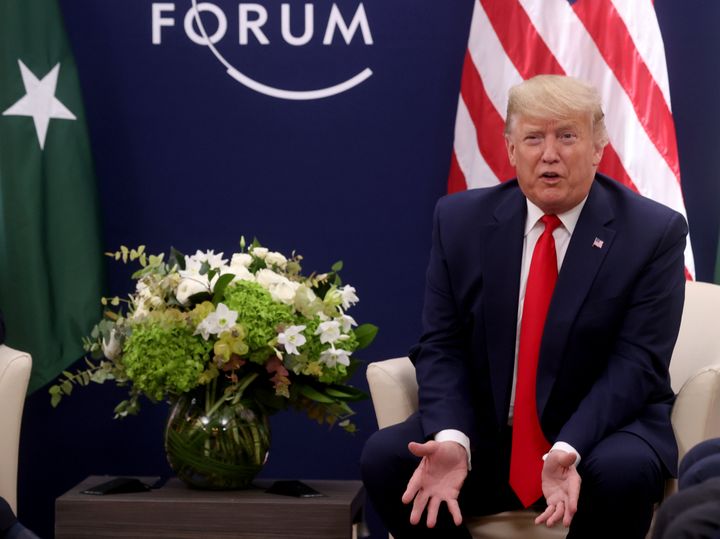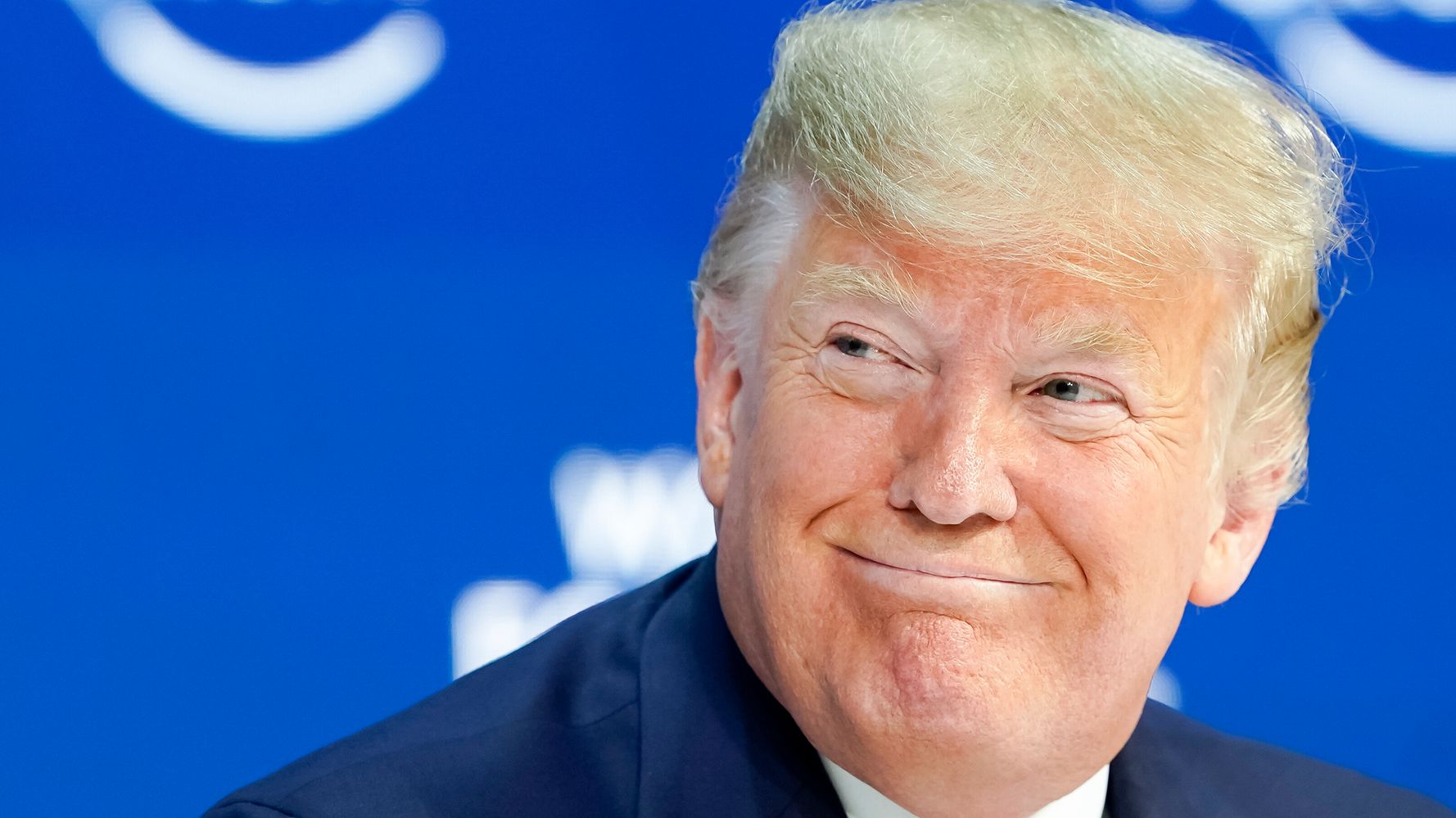[ad_1]
President Donald Trump confirmed Tuesday that his administration is working on adding countries to his controversial travel ban.
Trump told The Wall Street Journal that he is seeking to expand the ban, but refused to reveal which countries would be targeted.
The statement corroborates several recent reports about a potential update to the ban, which currently suspends immigrant and nonimmigrant visas for applicants from five majority-Muslim nations — Iran, Libya, Somalia, Syria and Yemen — as well as Venezuela and North Korea.
The expanded list potentially may include U.S. allies that have failed to comply with certain security measures, The Associated Press reports.
The White House did not immediately respond to HuffPost’s requests for comment.

The original ban, issued without warning through an executive order on Jan. 27, 2017, suspended travel from Iraq, Iran, Libya, Somalia, Sudan and Yemen for 90 days, blocked refugee admissions for 120 days and suspended travel from Syria. It sparked massive protests at airports across the country and resulted in months of contentious litigation from civil rights groups.
The ban has been updated several times, and the Supreme Court decided in June 2018 to uphold a watered-down, third iteration of it. The majority of justices agreed there was a “sufficient national security justification” for the order.
In practice, the travel ban has prevented people from seeking needed medical treatment in the U.S. and separated thousands of families. Waivers to the travel ban are notoriously hard to obtain, civil rights groups say. The State Department rejected over 37,000 visa applications because of the travel ban in 2018.
Some civil rights groups and Democratic politicians have been calling for a federal No Ban Act to be passed, which would repeal Trump’s travel ban, require specific reasons for any immigration restrictions and prohibit religious discrimination.
Trump is expected to rally his base during the 2020 election by highlighting his anti-immigration agenda, which includes the ban and his efforts to build a wall along the U.S.-Mexico border.
Many Muslim activists still consider the travel ban to be a “Muslim ban,” tracing its roots back to Trump’s December 2015 call for a “total and complete shutdown of Muslims entering the United States.”
Farhana Khera, executive director of Muslim Advocates, called Trump’s plan to expand the travel ban a “cowardly and reckless attempt to distract the country and sow anti-Muslim hate.”
“Doubling down on it won’t make any of us safer but it will allow the president to continue using anti-Muslim hate as a political weapon,” she said in a statement. “The Muslim Ban is a grave insult to our nation’s founding commitments to religious freedom and equal treatment under the law. Congress must do everything possible to end this cruelty right now.”
Calling all HuffPost superfans!
Sign up for membership to become a founding member and help shape HuffPost’s next chapter
[ad_2]
Source link

